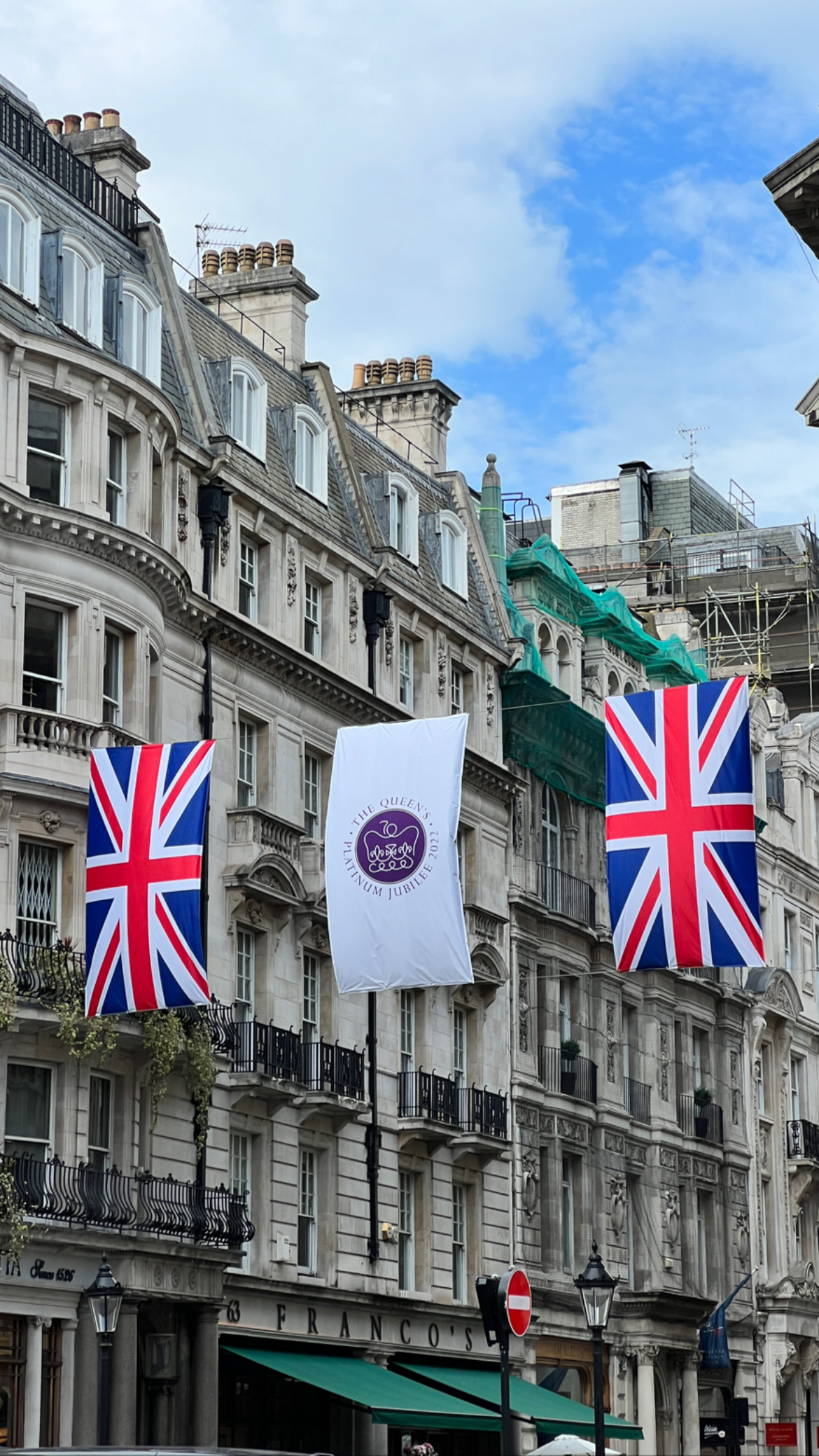
Jaylen in London- Week #3
This past weekend was one of the most iconic events to happen in Britain in decades: The Platinum Jubilee. It was a countrywide celebration of Queen Elizabeth in her 70th year of being the ruler of the UK and Commonwealth countries, the longest-reigning monarch in UK history. I was incredibly excited to participate in this momentous occasion, as there were parades and concerts hosted within or around Buckingham Palace, and countless smaller celebrations across the UK. Everywhere you went there were crowds of people decked out in Union Jack symbols or dressed in red, white, and blue, all looking forward to celebrating the success of the UK and its leadership. I was even told by my family that they watched the very parade I attended on the news over in North Carolina, which was a shock and a lesson in just how prominent this occasion was. While I did enjoy myself and the events I attended, I was having mixed feelings about the entire concept of celebrating Elizabeth.
Running a country for 7 decades is an incredible feat, but I pondered over how those from Commonwealth countries felt about the Jubilee. I know from experience in America, that the 4th of July can be a whirlwind of emotions for certain marginalized groups. They want to celebrate the country their people were able to survive in but also have to acknowledge the pain and injustices that said the country had inflicted upon them. My own concept of patriotism has a very marginalized-centric view because that’s what I know and my family’s experience. Though we’ve made great strides in our country, it’s still not a very accepting place in terms of expressing Blackness. With this in mind, I wanted to go to attend events that gave me specific perspectives other than those of the white, monarchy supporting individuals. In particular, I heard out stories from those from the Caribbean, as well as Indian folks, both groups who have a tempestuous relationship with the crown. I learned so much in terms of how these groups felt taken advantage of as they watched their resources stripped and their people used for profit by the “motherland”. For these groups, the road to being seen as true Brits was a long and arduous one, because they had to combat xenophobia as well as racism in their coming to the UK. They described a form of racism that is more insidious than what we mostly see in the US, and it made them feel like second-class citizens in a country that offered them citizenship with little prompting. It felt like such a familiar story to me, but a bit scarier considering that many of these countries were added to the Commonwealth fairly recently (within the past century), so it felt like they had no autonomy over their own economy or political status. The UK offered them opportunity, but only because they were heavily colonized by Elizabeth and her preceding monarchs. Another insult to injury for these groups was how their more “desirable” traits were adopted into British culture and became national treasures, while the people were oppressed beyond belief. Much of UK music utilizes “afro-beats” which are from and incredibly popular in the Caribbean as well as Africa, and that makes the top songs here more exotic and dance-worthy, with little credit to the people who actually introduced the music here. Along these same lines, Indian food dishes are some of the most popular in the country (chicken tikka masala is a national favorite), yet the Indian people suffered greatly under British rule. The dichotomy of these relationships opened my eyes to the race issues that exist within the UK that nobody mentions unless they live here and experience it firsthand. I was incredibly grateful to have heard these stories with my own ears and gotten a realistic look into what it’s like to be a Commonwealth citizen living in the UK.
The UK and US share similarities when it comes to arduous relationships with marginalized groups. National celebrations are opportunities for these people to celebrate themselves and their culture, rather than the cultures that were forced upon them by bigots who do not understand them. I feel like I can relate to the people of color here a lot more than I did before, and I do have the Platinum Jubilee to thank for that.
